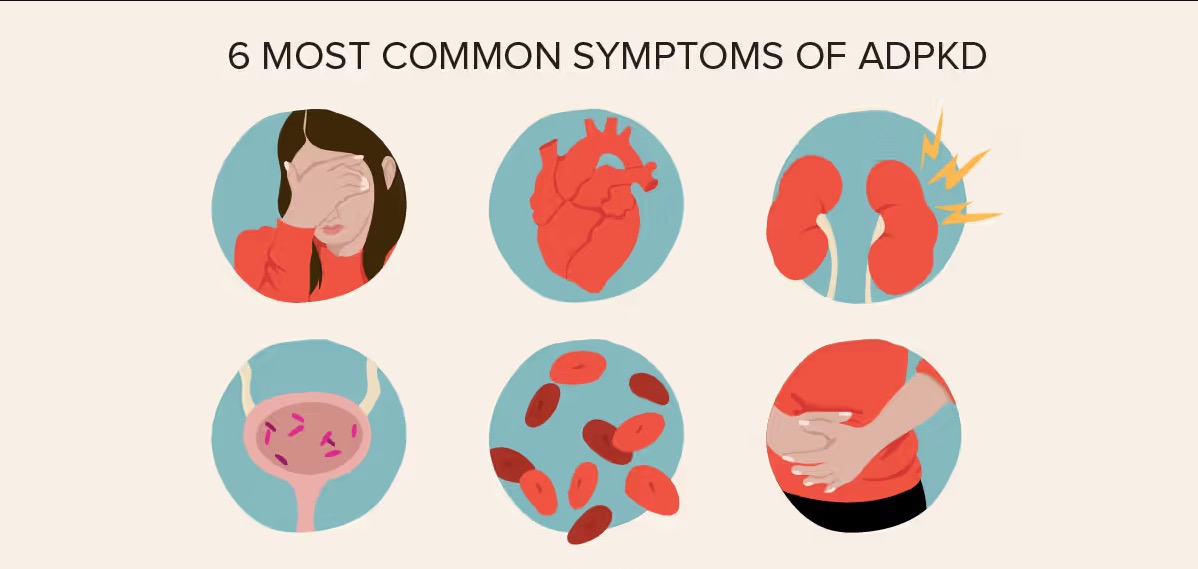Undiagnosed Autosomal Dominant Polycystic Kidney Disease can lead to a range of complications, from serious to less severe. The most critical complication is kidney failure, which necessitates dialysis or a kidney transplant. Individuals with ADPKD also face a higher risk of developing high blood pressure, which can further harm the kidneys and other organs. Less severe but still concerning issues include chronic pain due to enlarged kidneys or cysts, urinary tract infections, and kidney stones. This makes it very important to know how you can recognize this condition.

Symptoms of Autosomal Dominant Polycystic Kidney Disease
ADPKD is a condition that can be hard to notice at first, but there are a few signs that might help someone recognize it. The two most common symptoms are high blood pressure and pain in the back or sides. These symptoms happen because the kidneys start having lots of cysts, which are like little water balloons, and these cysts make the kidneys work harder and get bigger. Apart from these, someone with ADPKD might also notice:
- Headaches
- Blood in the urine
- Feeling tired or weak
- Urinary tract infections
- Kidney stones
- Swelling in the hands and feet
How is ADPKD diagnosed?
The abovementioned symptoms can vary from person to person, and just because someone has one or two of them doesn’t necessarily mean they have ADPKD. But if someone does notice these signs, especially if they have a family member with ADPKD, it’s a good idea to talk to a doctor about it. Usually, doctors start by asking about any symptoms you’re having and if your family has a history of kidney problems. After that, the doctor will do a couple of tests to check your kidneys. Think of imaging tests, like an ultrasound or CT/MRI scan, blood tests and genetic tests.
Are There Any Treatment Options?
By looking at the results from these tests, along with what you and your family tell them, the doctor can figure out if you have ADPKD and set up the right treatment plan for you. The right treatment can depend on how severe the ADPKD is and what symptoms a person has. Treating Autosomal Dominant Polycystic Kidney Disease usually focuses on handling the symptoms and preventing the condition from getting worse. The two most common treatment options are: High Blood Pressure medications and pain management. Alongside these, there are other ways to treat or manage this condition:
- Healthy Lifestyle: Eating a balanced diet, exercising, and not smoking can help keep the kidneys working well.
- Antibiotics: If there’s an infection in the kidneys or urinary tract, doctors might use antibiotics to treat it.
- Surgery: Sometimes, if the cysts are causing a lot of pain or other problems, the doctor might suggest surgery to drain them.
- Dialysis or Kidney Transplant: In cases where the kidneys stop working properly, treatments like dialysis (a machine that cleans your blood) or a kidney transplant might be needed.
It’s important to do a lot of research on this condition. You can do this by talking to your professional healthcare provider, as well as through online research. We want to help you along, so start your search here:

